 W
WThis is a list of systems scientists, people who made notable contributions in the field of the systems sciences:
 W
WBéla Heinrich Bánáthy was an Hungarian-American linguist, and Professor at San Jose State University and UC Berkeley. He is known as founder of the White Stag Leadership Development Program, established the International Systems Institute in 1982, and was co-founder of the General Evolutionary Research Group in 1984.
 W
WDimitri Panteli Bertsekas is an applied mathematician, electrical engineer, and computer scientist, a McAfee Professor at the Department of Electrical Engineering and Computer Science in School of Engineering at the Massachusetts Institute of Technology (MIT), Cambridge, Massachusetts, and also a Fulton Professor of Computational Decision Making at Arizona State University, Tempe.
 W
WAlexander Aleksandrovich Bogdanov, born Alexander Malinovsky, was a Russian and later Soviet physician, philosopher, science fiction writer, and Bolshevik revolutionary.
 W
WMario Augusto Bunge was an Argentine philosopher and physicist who was mainly active in Canada.
 W
WFritjof Capra is an Austrian-born American physicist, systems theorist and deep ecologist. In 1995, he became a founding director of the Center for Ecoliteracy in Berkeley, California. He is on the faculty of Schumacher College.
 W
WAlexander V. Chayanov was a Soviet agrarian economist, and scholar of rural sociology and advocate of agrarianism and cooperatives.
 W
WAlexander (Aleco) Christakis is a Greek American social scientist, systems scientist and cyberneticist, former faculty member of several Universities, organizational consultant and member of the Club of Rome, known for his "study and design of social systems".
 W
WGerhard Chroust is an Austrian systems scientist, and Professor Emeritus for Systems Engineering and Automation at the Institute of System Sciences at the Johannes Kepler University Linz, Austria. Chroust is an authority in the fields of formal programming languages and interdisciplinary information management.
 W
WManfred Edward Clynes was an Austrian-born scientist, inventor, and musician. He is best known for his innovations and discoveries in the interpretation of music, and for his contributions to the study of biological systems and neurophysiology.
 W
WClaus Emmeche is a Danish theoretical biologist and philosopher. He is associate professor at the University of Copenhagen, and is head of the Center for the Philosophy of Nature and Science Studies at the Faculty of Science.
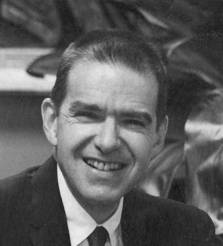 W
WHugo Otto Engelmann was an American sociologist, anthropologist and general systems theorist. Throughout his work he emphasized the significance of history.
 W
WAlexei Lvovich Eryomin is a Russian doctor, scientist, and hygienist, whose scientific research has contributed to the modern understanding of noogenesis. He defined the concept of information ecology and information hygiene.
 W
WMiguel Angel Fernández Sanjuán is a Spanish Theoretical Physicist from Leon, Spain. He is known for his contributions in nonlinear dynamics, chaos theory, and control of chaos, and has published several scientific papers and popular news articles. He has supervised around 20 PhD students in Nonlinear Dynamics, Chaos and Complex Systems.
 W
WHeinz von Foerster was an Austrian American scientist combining physics and philosophy, and widely attributed as the originator of Second-order cybernetics. He was twice a Guggenheim fellow and also was a fellow of the American Association for the Advancement of Science, 1980. He is well known for his 1960 Doomsday equation formula published in Science predicting future population growth.
 W
WBen Goertzel is an artificial intelligence researcher.
 W
WAron Iosifovich Katsenelinboigen was a founder of predispositioning theory, a subject in decision theory and systems theory that models development in the context of uncertainty.
 W
WDaria Andreyevna Khaltourina is a Russian sociologist, anthropologist, demographer, and a public figure. She is the head of the Group of the Monitoring of Global and Regional Risks of the Russian Academy of Sciences, co-chairperson of the Russian Coalition for Alcohol Control, as well as the Russian Coalition for Tobacco Control. She is a laureate of the Russian Science Support Foundation Award in "The Best Economists of the Russian Academy of Sciences" nomination (2006).
 W
WGeorge Jiří Klir was a Czech-American computer scientist and professor of systems sciences at Binghamton University in Binghamton, New York.
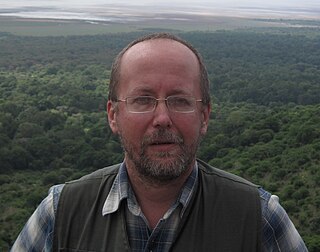 W
WAndrey Vitalievich Korotayev is a Russian anthropologist, economic historian, comparative political scientist, demographer and sociologist, with major contributions to world-systems theory, cross-cultural studies, Near Eastern history, Big History, and mathematical modelling of social and economic macrodynamics.
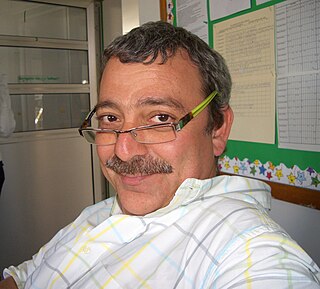 W
WYiannis Laouris is a Greek Cypriot entrepreneur, neurophysiologist, and systems scientist. Trained in the U.S. and Germany, he has become known for his socially responsible work and scientific contributions in the fields of peace and development through the application of modern technology and the science of structured dialogic design.
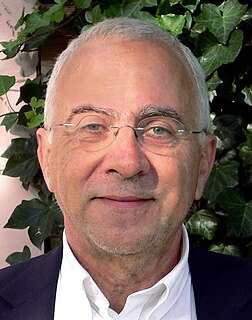 W
WLouis André (Loet) Leydesdorff is a Dutch sociologist, cyberneticist and Professor in the Dynamics of Scientific Communication and Technological Innovation at the University of Amsterdam. He is known for his work in the sociology of communication and innovation.
 W
WCarlos Roberto Velho Cirne Lima, also referred to as Carlos Cirne Lima, is a Brazilian contemporary dialectical philosopher. He obtained his doctor-degree in 1958 at the University of Innsbruck, Austria. Was a full professor at the universities UFRGS, PUCRS in Porto Alegre, and UNISINOS in São Leopoldo, Rio Grande do Sul.
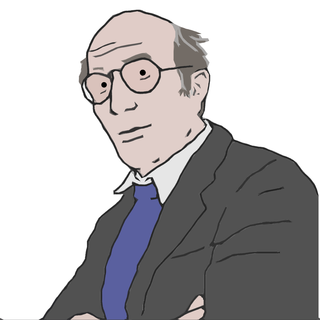 W
WNiklas Luhmann was a German sociologist, philosopher of social science, and a prominent thinker in systems theory, who is considered one of the most important social theorists of the 20th century.
 W
WFredmund Malik is an Austrian economist with focus on management science and the founder and chairman of a management consultancy in St. Gallen.
 W
WEbrahim (Abe) H. Mamdani was a mathematician, computer scientist, electrical engineer and artificial intelligence researcher. He worked at the Imperial College London.
 W
WHumberto Maturana is a Chilean biologist turned philosopher. Many consider him a member of a group of second-order cybernetics theoreticians such as Heinz von Foerster, Gordon Pask, Herbert Brün and Ernst von Glasersfeld.
 W
WChrista Muth is a German systems scientist, management professor and management consultant. She spent most of her life in Switzerland and is notable for emphasizing the importance of the intangible aspects in organizations and in business strategies. She coined the term “Human Systems Engineering” and gave it to a Master of Advanced Studies Program she developed at the HES-SO. After she handed over the direction of this program to a successor, she developed a new area of interest in the field of “societal innovation”.
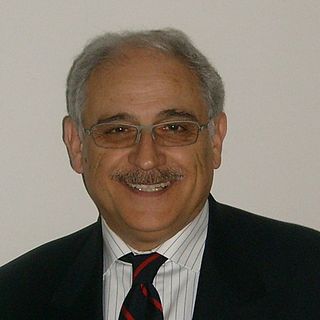 W
WJohn Pourdehnad is an American organizational theorist, and consultant. He is associate director of the Ackoff Center for Advancement of Systems Approaches (ACASA), and Affiliated Faculty in the Organizational Dynamics Graduate Program at the University of Pennsylvania.
 W
WPeter Heinrich Schwartze is a German neurophysiologist, systems scientist and cyberneticist well known in the ex-German Democratic Republic. Schwartze graduated the medical University in Leipzig, Germany in 1957 and specialized in Neurophysiology. He studied and worked at the universities of Rostock, Greifswald and Leipzig. He became Doctor Habilitatus of the University Leipzig, Germany in 1968 and Professor of Pathophysiology in 1978 and served as the Director of the Carl Ludwig Institute of Physiology between 1980 and 1992 as successor of Hans Drischel.
 W
WSuresh P. Sethi is Eugene McDermott Chair Professor of Operations Management and Director of the Center for Intelligent Supply Networks (C4ISN) at The University of Texas at Dallas. He has contributed significantly in the fields of manufacturing and operations management, finance and economics, marketing, industrial engineering, operations research, and optimal control. He is well known for his developments of the Sethi advertising model and DNSS Points, and for his textbook on optimal control.
 W
WVadym Slyusar — Soviet and Ukrainian scientist, Professor, Doctor of Technical Sciences, Honored Scientist and Technician of Ukraine, founder of tensor-matrix theory of digital antenna arrays (DAAs), N-OFDM and other theories in fields of radar systems, smart antennas for wireless communications and digital beamforming.
 W
WField Marshal Jan Christian Smuts was a South African statesman, military leader, and philosopher. In addition to holding various military and cabinet posts, he served as prime minister of the Union of South Africa from 1919 to 1924 and 1939 to 1948.
 W
WPitirim Alexandrovich Sorokin was a Russian, later American, sociologist and political activist, who contributed to the social cycle theory.
 W
WPeter (Petre) Stoica is a researcher and educator in the field of signal processing and its applications to radar/sonar, communications and bio-medicine. He is a professor of Signal and System Modeling at Uppsala University in Sweden, and a Member of the Royal Swedish Academy of Engineering Sciences, the United States National Academy of Engineering (Foreign Member), the Romanian Academy, the European Academy of Sciences, and the Royal Society of Sciences. He is also a Fellow of IEEE, EURASIP, and the Royal Statistical Society.
 W
WPaul Tseng was a Chinese-American and Canadian applied mathematician and a professor at the Department of Mathematics at the University of Washington, in Seattle, Washington. Tseng was recognized by his peers to be one of the leading optimization researchers of his generation. On August 13, 2009, Paul Tseng went missing while kayaking in the Yangtze River in the Yunnan province of China and is presumed dead.
 W
WValentin Fyodorovich Turchin was a Soviet and American physicist cybernetician and computer scientist. He developed the Refal programming language, the theory of metasystem transitions and the notion of supercompilation. He was as a pioneer in artificial intelligence and a proponent of the global brain hypothesis.
 W
WFrancisco Javier Varela García was a Chilean biologist, philosopher, cybernetician, and neuroscientist who, together with his mentor Humberto Maturana, is best known for introducing the concept of autopoiesis to biology, and for co-founding the Mind and Life Institute to promote dialog between science and Buddhism.
 W
WVladimir Alekseevich Varyukhin — Soviet and Ukrainian scientist, Professor, Doctor of Technical Sciences, Honored Scientist of the UkrSSR, Major-General, founder of the theory of multichannel analysis, creator of the scientific school on digital antenna arrays (DAAs).
 W
WLotfi Aliasker Zadeh was a mathematician, computer scientist, electrical engineer, artificial intelligence researcher and professor emeritus of computer science at the University of California, Berkeley.